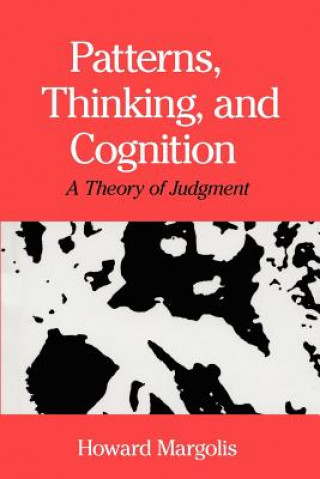
Code: 04547228
Patterns, Thinking, and Cognition - A Theory of Judgment
by Howard Margolis
For decades, both policymakers and analysts have been frustrated by sharp and stubborn conflicts between expert and lay perceptions on issues of environmental risk. For example, most experts - even those opposed to nuclear power o ... more
- Language:
 English
English - Binding: Paperback
- Number of pages: 340
Publisher: The University of Chicago Press, 1990
- More about this

You might also like
-

Six of Crows: Collector's Edition
19.26 € -19 % -

Life 3.0
10.58 € -26 % -

Kim Jiyoung, Born 1982
10.79 € -9 % -

Infinite Jest
12.70 € -26 % -

Ready Player One
10.28 € -28 % -

Complete Swedish Beginner to Intermediate Course
35.91 € -20 % -

Natural History Book
35.91 € -18 % -
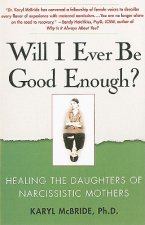
Will I Ever be Good Enough?
18.25 € -9 % -

Visual Thinking Workbook
13.51 € -5 % -

The Art Therapy Sourcebook
19.26 € -28 % -

Peaky Blinders: The Legacy - The real story of Britain's most notorious 1920s gangs
9.27 € -28 % -

The City of Brass
9.88 € -26 % -

Halo Encyclopedia
46.50 € -7 % -

Léčivé a zrádné síly hub
17.65 € -11 % -

Very First Questions and Answers What is the Moon?
8.97 € -22 % -

Mindf*ck
11.09 € -29 % -
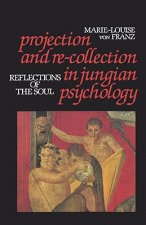
Projection and Re-collection in Jungian Psychology
26.43 € -19 % -
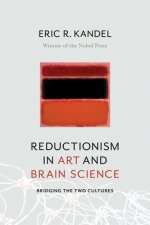
Reductionism in Art and Brain Science
21.99 € -7 % -

Pattern Cutting Second Edition
52.76 € -16 % -
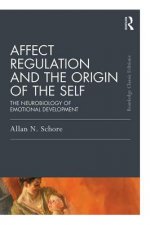
Affect Regulation and the Origin of the Self
128.73 € -

Now What?
15.93 € -20 % -

Architecture
34.30 € -20 % -

Magos
11.69 € -18 % -

Geopolitical Alpha
23.20 € -27 % -

What the Face Reveals
117.94 € -

Bomba!
13.61 € -15 % -

Alergologie do kapsy
11.59 € -19 % -

Workflow Automation with Microsoft Power Automate - Second Edition
51.85 € -

Thinking with Data
28.24 € -28 % -

Centrist Manifesto
13.11 € -4 % -

COOK4ME
13.01 € -14 % -

Handbook of Landscape Archaeology
66.48 € -4 % -

Thinking in Pictures
18.66 € -22 % -

Fal Nama: Divination Book of Hafez of Shiraz
24.41 € -2 % -

The Archaeology Book
15.12 € -24 % -

Descent of Man
10.99 € -10 % -

Vanda Přísně tajné!
7.46 € -5 % -

Global Beginner Workbook & CD with key Pack
11.90 € -8 % -

Sabiston and Spencer Surgery of the Chest
321.75 € -4 % -

Behavioral Psychology: Understanding Human Behavior
142.25 € -6 % -

Oxford Handbook of Cognitive Science
238.31 € -

Handbook of Art Therapy
109.77 € -

Komentarz do Konstytucji RP art. 120, 121, 122, 123, 124
13.41 € -8 % -

News Interview
149.52 € -

Freefall
21.88 € -18 % -

Everyday Gratitude: Inspiration for Living Life as a Gift
12.20 € -14 % -

Fundamentals of Cognition
67.49 € -

Standard Deviation of Death: The Outlier Prophecies
13.21 € -6 % -

China hören, 1 Audio-CD
24.71 € -5 %
Give this book as a present today
- Order book and choose Gift Order.
- We will send you book gift voucher at once. You can give it out to anyone.
- Book will be send to donee, nothing more to care about.
More about Patterns, Thinking, and Cognition - A Theory of Judgment
You get 116 loyalty points
 Book synopsis
Book synopsis
For decades, both policymakers and analysts have been frustrated by sharp and stubborn conflicts between expert and lay perceptions on issues of environmental risk. For example, most experts - even those opposed to nuclear power on other grounds - would see precautions like those now in place as adequate to protect against risks from nuclear waste. But the public finds that very hard to believe. Similar sharp conflicts of expert/lay intuition are evident on a wide range of risk issues, from the safety of bendictin as a treatment for morning sickness to the safety of irradiation of food to destroy microorganisms. In Dealing with Risk, Howard Margolis explores the expert/lay rift surrounding such contentious issues and provides a provocative new account. The usual explanation of expert/lay conflicts is that experts are focused only on a narrow notion of risk - such as potential fatalities - but lay intuition is concerned about a wide range of further concerns, such as fairness and voluntariness of exposure. Margolis argues that this "rival rationalities" view in a fundamental way misses the point of these controversies, since the additional dimensions of lay concern often are more plausibly interpreted as reflections of lay concern than as causes. Margolis argues that risk assessment typically involves weighing a broad range of often complicated trade-offs between costs and benefits. As laypersons, however, we are by definition forced to make judgments on complex matters beyond the scope of our normal experience. Especially in cases involving potential danger, we frequently discount nuance and respond more viscerally. Cognitively we fall back on default responses, all-purpose intuitionssuch as "better safe than sorry" or "nothing ventured, nothing gained." Such intuitions don't admit of careful balancing of pros and cons, and lay opinion consequently becomes polarized and at odds with the expert view.
 Book details
Book details
Book category Books in English Society & social sciences Psychology Psychological theory & schools of thought
46.20 €
- Full title: Patterns, Thinking, and Cognition - A Theory of Judgment
- Author: Howard Margolis
- Language:
 English
English - Binding: Paperback
- Number of pages: 340
- EAN: 9780226505282
- ISBN: 0226505286
- ID: 04547228
- Publisher: The University of Chicago Press
- Weight: 556 g
- Dimensions: 231 × 158 × 22 mm
- Date of publishing: 03. August 1990
Trending among others
-

Emotional Intelligence
9.47 € -25 % -
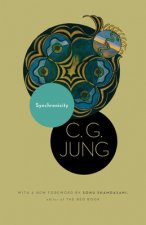
Synchronicity – An Acausal Connecting Principle
14.22 € -

How To Read Lacan
11.29 € -28 % -

Make It Stick
34.50 € -15 % -

Two Essays on Analytical Psychology
15.43 € -

Ecrits
32.58 € -8 % -

Memories, Dreams, Reflections
13.31 € -28 % -
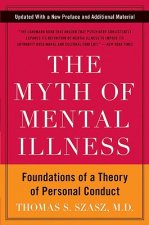
The Myth of Mental Illness
13.31 € -28 % -

Dreams
13.91 € -26 % -

The Interpretation of Dreams
5.03 € -31 % -

Psychopathology of Everyday Life
12.20 € -22 % -

Man's Search for Meaning, Gift Edition
22.79 € -15 % -
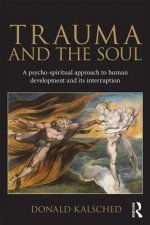
Trauma and the Soul
62.55 € -

Inner Gold
20.37 € -2 % -

Psychology of the Unconscious
16.64 € -

Dreams
19.06 € -16 % -

Archetypal Dimensions of the Psyche
35.20 € -13 % -

Art of C. G. Jung
80 € -15 % -

Syndetic Paradigm
46.30 € -

The Empathy Game
21.48 € -17 % -

Behave
12.30 € -16 % -
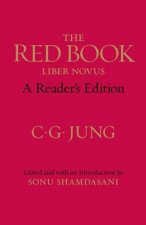
The Red Book – A Reader`s Edition
38.63 € -14 % -

The Sublime Object of Ideology
18.25 € -34 % -

Problem of the Puer Aeternus
19.26 € -28 % -

Ego and the Id
3.82 € -17 % -

Moonwalking with Einstein
12.80 € -18 % -

Red Book
240.73 € -16 % -

Answer to Job
8.57 € -29 % -

Archetypes and the Collective Unconscious
56.80 € -

Psychoanalyst Meets Marina Abramovic
20.37 € -19 % -

Portable Jung
27.03 € -19 % -

Skin-Ego
54.88 € -

Mass Psychology
15.23 € -28 % -

A General Introduction to Psychoanalysis
5.44 € -26 % -

The Undiscovered Self
8.97 € -26 % -

Choice Factory
16.54 € -22 % -

Great Mother
29.25 € -4 % -

Integral Psychology
22.79 € -21 % -

Four Archetypes
10.69 € -28 % -

Home is Where We Start from
15.12 € -18 % -

Situation Is Hopeless But Not Serious
15.63 € -8 % -

Masculine and Feminine
24.31 € -21 % -

Civilization and Its Discontents
10.89 € -15 % -

No Boundary
14.42 € -20 % -
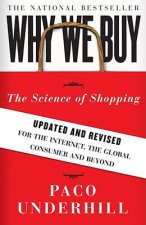
Why We Buy
16.84 € -16 % -

Behavioural Economics: A Very Short Introduction
10.58 € -18 % -

Secret World of Drawings
19.26 € -28 % -

Inner Child in Dreams
18.25 € -12 % -

Keys to Solution in Brief Therapy
25.62 € -16 %
Collection points Bratislava a 2642 dalších
Copyright ©2008-24 najlacnejsie-knihy.sk All rights reservedPrivacyCookies



 15549 collection points
15549 collection points Delivery 2.99 €
Delivery 2.99 € 02/210 210 99 (8-15.30h)
02/210 210 99 (8-15.30h)